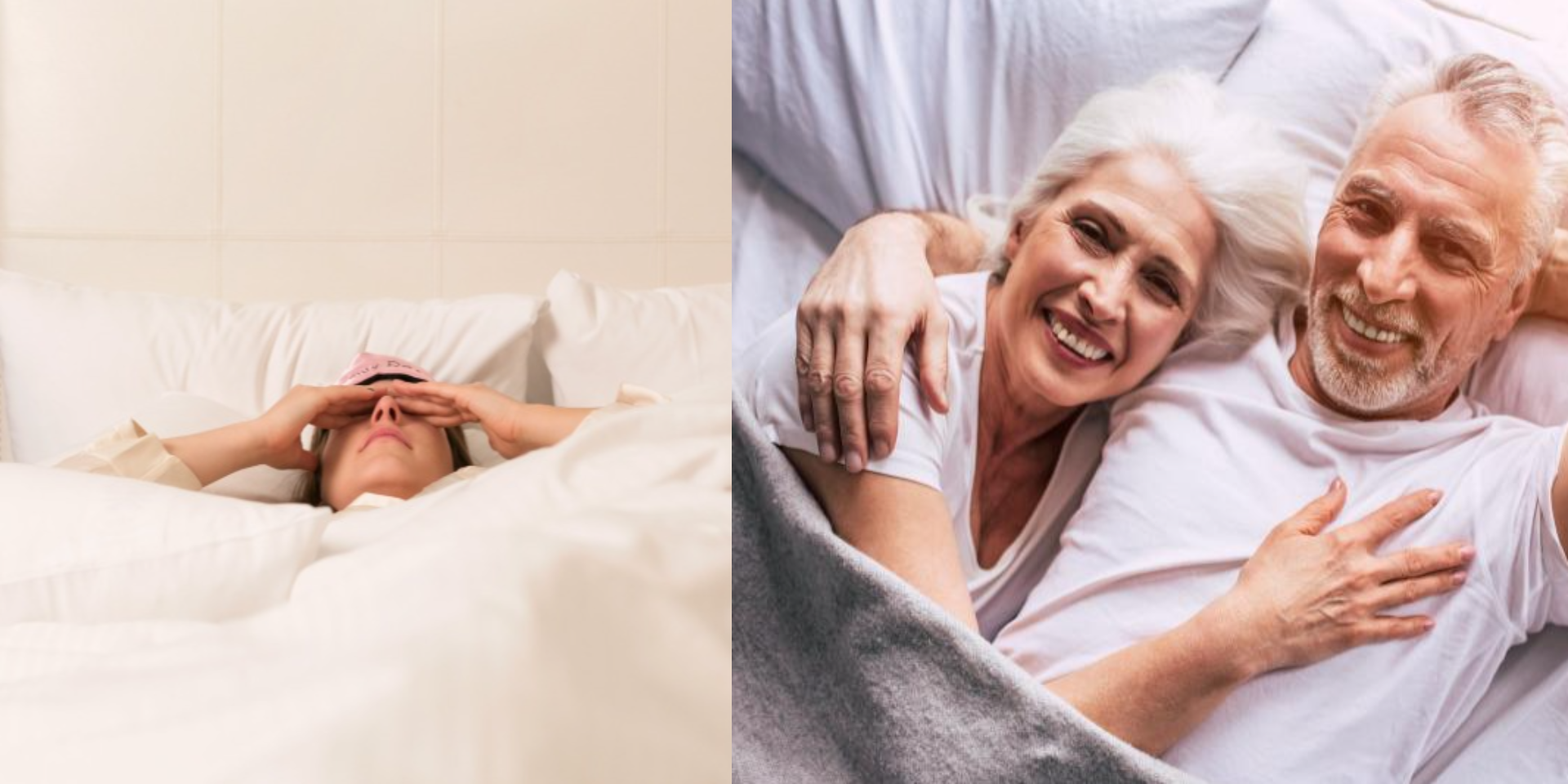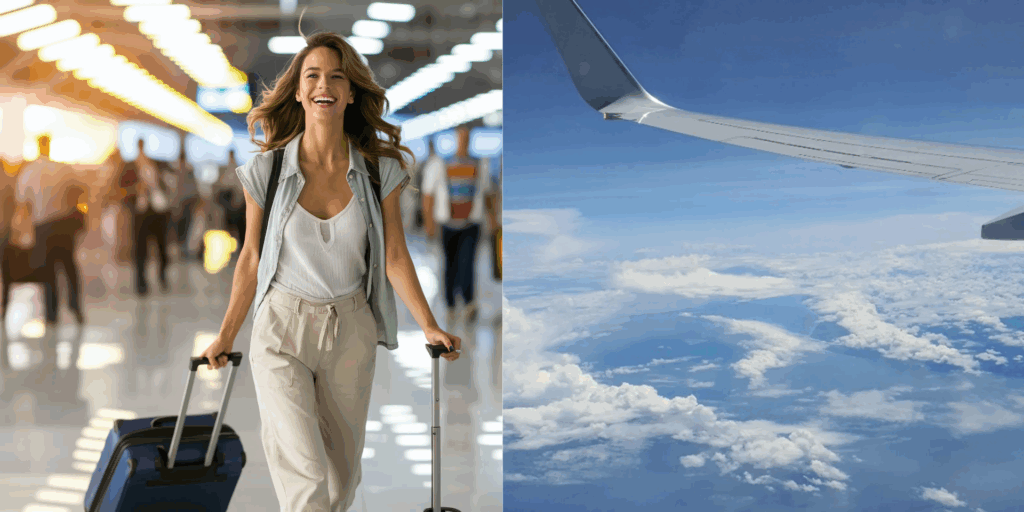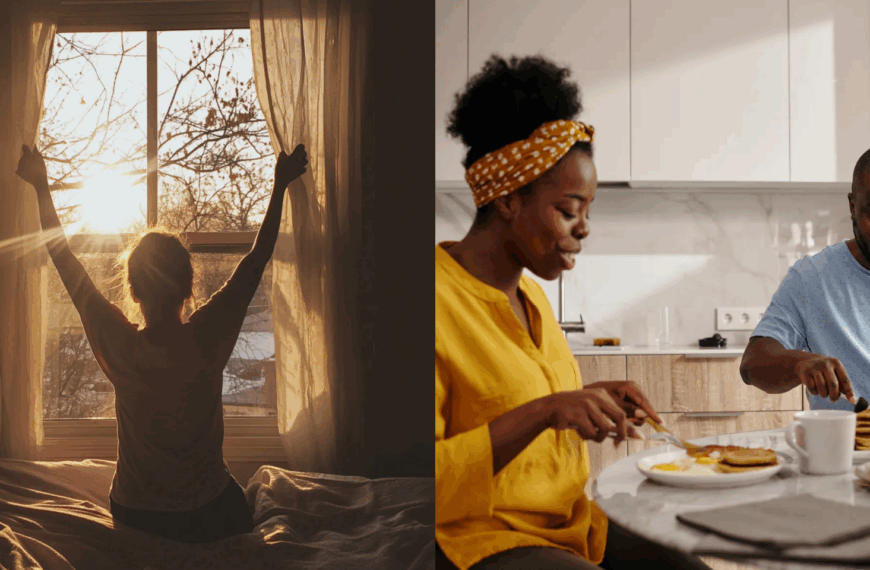Struggling with sleep? You’re not alone. 1 in 3 adults don’t get enough quality sleep, but cutting-edge research reveals exactly what works – and what doesn’t.
TL;DR: The Sleep Essentials That Actually Work
Before we dive deep, here’s what science says works right now:
✅ CBT-I beats sleeping pills (and lasts longer)
✅ Morning sunlight + evening darkness = better sleep timing
✅ Warm bath 1-2 hours before bed = faster sleep onset
✅ No caffeine 6+ hours before sleep (yes, even afternoon coffee matters)
✅ Regular exercise improves sleep quality by 65%
✅ Consistent sleep schedule (even on weekends)
Why Your Sleep Matters More Than You Think
Poor sleep isn’t just about feeling tired tomorrow. Research links sleep deprivation to:
- 40% increased risk of weight gain
- Weakened immune system (3x more likely to catch a cold)
- Reduced cognitive performance equivalent to being legally drunk
- Increased anxiety and depression risk
The good news? Small changes can create dramatic improvements in just 2 weeks.
Part 1: The Foundation – Sleep Rhythm & Consistency
The “Social Jet Lag” Problem
You know that Sunday night insomnia? That’s social jet lag – when your weekend sleep schedule crashes into Monday reality. Your body treats this like flying across time zones twice a week.
The Fix: Stick to the same sleep/wake time within ±30 minutes, even on weekends. I know, I know – but this single change improves sleep quality more than most supplements.
Part 2: The Gold Standard Treatment (It’s Not What You Think)
CBT-I: The Sleep Therapy That Beats Pills
The American College of Physicians recommends Cognitive Behavioral Therapy for Insomnia (CBT-I) as the #1 treatment for chronic sleep problems – not medication.
The Three Pillars of CBT-I:
1. Stimulus Control: Retrain Your Brain
- Bed = sleep only (no phones, TV, or worrying)
- Can’t sleep in 15-20 minutes? Get up and do a quiet activity
- Return to bed only when sleepy
2. Sleep Restriction: Less Time in Bed (Counterintuitively)
- If you sleep 6 hours but spend 8 in bed, limit bed time to 6.5 hours
- Gradually increase as sleep efficiency improves
- Builds stronger “sleep drive”
3. Cognitive Restructuring: Stop Sleep Anxiety
- Challenge thoughts like “I’ll be useless tomorrow if I don’t sleep”
- Replace with: “I’ve functioned on less sleep before, and I’ll be okay”
Why CBT-I Works Better: Unlike pills, the benefits last years after treatment ends, with no side effects or dependency risk.
Part 3: Master Your Light Exposure
Morning: Bright Light Therapy
Within 30-60 minutes of waking, get 5,000-10,000 lux of light exposure. This advances your circadian clock, making you naturally tired earlier.
Practical tips:
- 20-30 minutes outdoors (even cloudy days provide 1,000+ lux)
- Sit by a bright window while having coffee
- Consider a light therapy box for dark winter mornings
Evening: Digital Sunset Protocol
The blue light from screens suppresses melatonin production for hours. Research shows reading on tablets vs. printed books delays sleep by 10+ minutes and reduces next-day alertness.
Your Evening Light Strategy:
- Switch devices to night mode 2 hours before bed
- Use warm, dim lighting (think candlelight vibes)
- Try blue light blocking glasses if you must use screens
Part 4: Temperature Hacking for Faster Sleep
The Warm-to-Cool Sleep Trick
Your core body temperature needs to drop 2-3°F to initiate sleep. A warm bath or shower 1-2 hours before bed creates the perfect temperature curve.
The Science: Hot water dilates blood vessels, promoting heat loss after you get out – exactly what your body needs for sleep.
Optimize Your Sleep Environment:
- Bedroom temperature: 65-68°F (18-20°C)
- Breathable bedding materials
- Consider a fan for air circulation
Part 5: Daytime Habits That Make or Break Your Sleep
Exercise: Your Natural Sleep Aid
Regular exercise improves sleep quality by up to 65%, but timing matters:
✅ Best Times: Morning or afternoon
❌ Avoid: Intense exercise 3 hours before bed (gentle stretching is fine)
The Sweet Spot: 150+ minutes moderate exercise per week (just 22 minutes daily)
The Caffeine Truth Bomb
Even caffeine consumed 6 hours before bedtime significantly disrupts sleep – reducing total sleep time by over an hour in some studies.
Your Caffeine Cutoff: If you sleep at 10 PM, no caffeine after 4 PM. For 11 PM sleepers, cut off at 5 PM.
Alcohol: The Sleep Quality Destroyer
While alcohol might help you fall asleep faster, it fragments your sleep and reduces REM sleep by up to 25%. You’ll wake up less rested even with the same amount of sleep.
Smart Napping Strategy
Power naps (10-20 minutes) can boost alertness without affecting nighttime sleep. Longer naps create “sleep inertia” – that groggy feeling that can last hours.
Timing: Early afternoon only (1-3 PM max)
Part 6: Nutrition for Better Sleep
Research reveals that what you eat affects how you sleep:
Sleep-Promoting Foods:
- High fiber foods → deeper slow-wave sleep
- Tart cherries → natural melatonin
- Magnesium-rich foods (almonds, spinach)
Sleep Disruptors:
- High saturated fat → fragmented sleep
- Added sugars → more nighttime awakenings
- Large meals 2-3 hours before bed → heartburn and elevated body temperature
Part 7: Sleep Tools & Supplements (What’s Worth It?)
Weighted Blankets: The Anxiety Reducer
Clinical trials show weighted blankets (8-12% of body weight) can:
- Reduce insomnia severity by 26%
- Decrease nighttime awakenings
- Lower daytime fatigue
Best for: People with anxiety or sensory processing issues
Melatonin: Overhyped but Sometimes Useful
Meta-analyses show melatonin only reduces sleep onset by 7-12 minutes on average. It’s not recommended as a first-line treatment for chronic insomnia.
When it helps: Jet lag, shift work, or circadian rhythm disorders
Dosage: 0.5-3mg, 2-3 hours before desired sleep time (not right before bed)
Sleep Medications: Last Resort Only
The medical consensus is clear: CBT-I first, medications only for short-term use. Sleep meds can create dependency and don’t address underlying causes.
Your 2-Week Sleep Transformation Plan
Week 1: Foundation Building
Daily Must-Dos:
- Fixed wake time (same time every day, including weekends)
- Morning light within 1 hour of waking (20-30 minutes outdoors)
- Caffeine cutoff 6+ hours before bedtime
- Exercise 30-45 minutes (walking counts!)
- Digital sunset 2 hours before bed
- Warm bath/shower 1-2 hours before sleep
Week 2: Fine-Tuning
Add these advanced strategies:
- Sleep restriction: Limit time in bed to actual sleep time + 30 minutes
- Stimulus control: Leave bed if not asleep in 20 minutes
- Food timing: Light dinner 2-3 hours before bed
- Bedroom optimization: Temperature, darkness, noise control
Track Your Progress
Monitor these metrics:
- Sleep onset time (how long to fall asleep)
- Number of nighttime awakenings
- Morning energy levels (1-10 scale)
- Daytime sleepiness
When to Seek Professional Help
See a sleep specialist if you experience:
🚨 Immediate concerns:
- Loud snoring with breathing interruptions
- Gasping or choking during sleep
- Falling asleep while driving
- Severe daytime fatigue despite adequate sleep
🔍 Ongoing issues:
- Insomnia lasting 3+ months
- Restless legs or uncomfortable sensations
- Sleep problems with depression/anxiety
- Persistent sleep difficulties despite following evidence-based strategies
The Bottom Line: Sleep is a Skill You Can Learn
Quality sleep isn’t luck – it’s a learnable skill backed by decades of research. The strategies above aren’t just theories; they’re proven interventions used by sleep clinics worldwide.
Start tonight with one or two changes. Your future self (and everyone around you) will thank you.
Remember: Great sleep is an investment in every aspect of your health, performance, and happiness. It’s not selfish to prioritize sleep – it’s essential.
What’s your biggest sleep challenge? Have you tried any of these evidence-based strategies? Share your experience in the comments below – your story might help someone else finally get the sleep they deserve.
Sources & Further Reading
This guide synthesizes research from:
- American College of Physicians Clinical Guidelines
- Sleep Medicine Reviews and Meta-analyses
- National Sleep Foundation Guidelines
- American Academy of Sleep Medicine Position Papers
All recommendations are based on peer-reviewed research published in major medical journals. Individual results may vary, and this information doesn’t replace professional medical advice.







